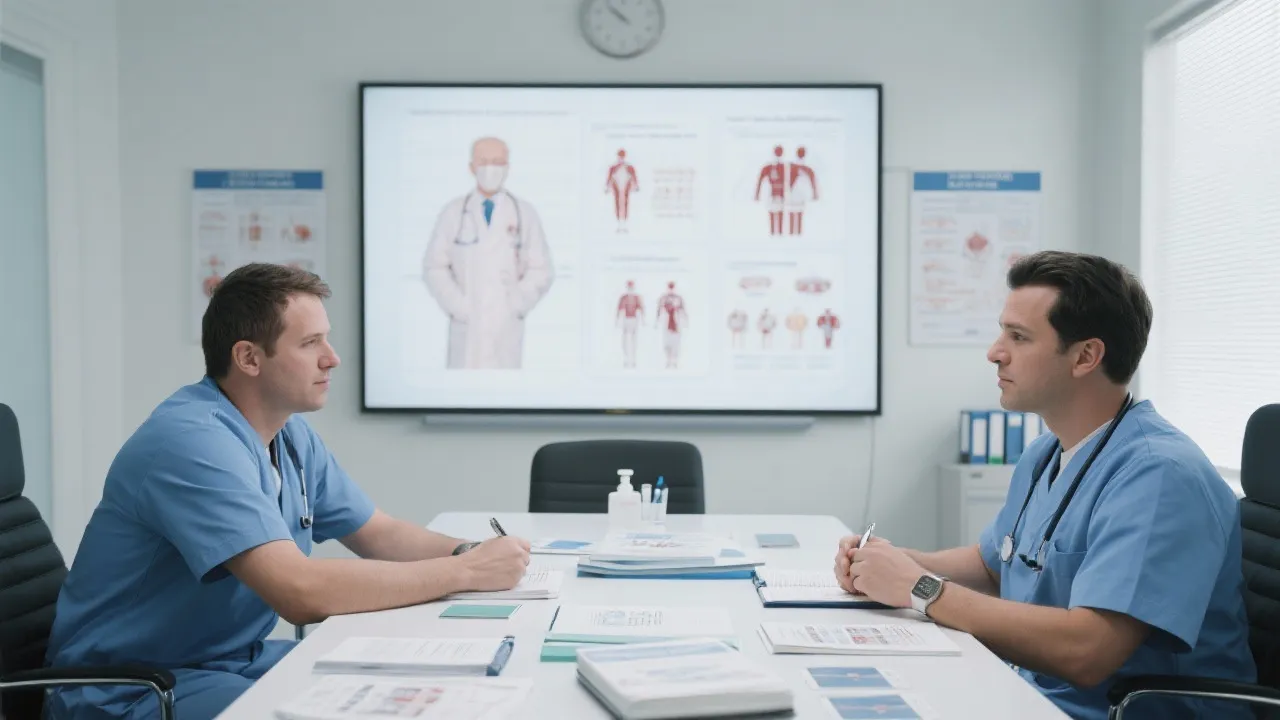Navigating the Path to LPN Certification
Licensed Practical Nurse (LPN) certification offers a gateway into the thriving field of nursing by equipping individuals with essential skills for patient care. This article delves into the significance of obtaining an LPN certificate, charting the course from educational prerequisites to career opportunities, ensuring readers are well-informed about this critical healthcare niche.

Understanding the Importance of an LPN Certificate
The healthcare field is continually evolving, and the demand for trained professionals is ever-growing. A Licensed Practical Nurse (LPN) certificate represents a vital stepping stone into the nursing profession. It provides foundational knowledge and skills necessary to deliver quality patient care under the supervision of registered nurses and doctors. As an LPN, one is equipped to perform essential tasks such as monitoring vital signs, administering medications, and providing bedside care. Beyond these essential tasks, LPNs often serve as the backbone of patient care, ensuring that patients feel comfortable, cared for, and informed about their health conditions. This role emphasizes the emotional and psychological aspects of nursing, allowing LPNs to develop strong relationships with patients, which is crucial in a healing environment.
Educational Pathways to LPN Certification
Pursuing an LPN certification typically involves enrolling in a state-approved training program that lasts approximately one year. These programs are available through community colleges, vocational schools, and certain universities. Upon completion, candidates must pass the National Council Licensure Examination for Practical Nurses (NCLEX-PN) to practice legally. Coursework will often include subjects like anatomy, pharmacology, nutrition, and medical ethics, combining theoretical knowledge with clinical practice to ensure competence in real-world settings. Furthermore, many programs also integrate simulation labs where students gain hands-on experience in a controlled environment, allowing them to practice skills such as IV insertion, wound care, and patient assessment before they interact with actual patients.
Steps to Achieving LPN Certification
- Research Accredited Programs: Identify institutions that offer LPN courses and ensure their accreditation status, which is pivotal for certification. Different institutions may also offer unique programs that align with particular career goals.
- Complete Coursework: Engage in both classroom instruction and practical clinical hours, gaining hands-on experience. This dual approach helps bridge the gap between theory and practice, ensuring that future LPNs are well-prepared for their roles.
- Prepare for NCLEX-PN: Utilize study materials, participate in review classes, and practice with sample tests to prepare comprehensively for the licensure exam. Many schools provide resources and tutoring to assist students in effectively preparing for the NCLEX-PN.
- Obtain Licensure: Upon passing the NCLEX-PN, apply for licensure through your state’s nursing board to become an officially recognized LPN. Each state has its own regulations, so understanding local requirements is crucial.
Comparing Institutions Offering LPN Programs
| Institution | Location | Duration | Tuition | Key Features |
|---|---|---|---|---|
| Community College A | Nearby City | 12 months | $7,500 | Accredited program, small class sizes, hands-on training |
| Vocational School B | Nearby Town | 14 months | $9,000 | Evening classes available, strong NCLEX pass rates |
| University C | Downtown Area | 11 months | $10,500 | Advanced simulation labs, experienced faculty |
| Technical Institute D | Suburban Region | 13 months | $8,200 | On-site clinical placements, internship opportunities |
Career Opportunities and Advancement
An LPN certificate opens several doors within the healthcare sector. Opportunities exist in hospitals, long-term care facilities, clinics, and home healthcare settings. According to the U.S. Bureau of Labor Statistics, the employment of LPNs is projected to grow significantly in the coming decade due to an aging population, a rise in chronic conditions, and a greater emphasis on preventative care. With the expansion of telehealth and home health services, LPNs may find themselves in roles that also integrate technology and patient education, further enhancing their careers.
Additionally, with experience, LPNs can further their nursing careers by pursuing advanced degrees to become registered nurses (RNs), nurse practitioners, or in various specializations such as gerontology or pediatrics. Continuing education is essential as it allows LPNs to stay current with new technologies, procedures, and regulations in the healthcare industry. Some may even choose to specialize in areas such as wound care, IV therapy, or mental health, which can provide further opportunities for career advancement and job satisfaction.
FAQs on LPN Certification
- What are the prerequisites for enrolling in an LPN program?
Typically, a high school diploma or GED is required, along with a background check and health screenings. Some programs may also have entrance exams to gauge readiness for the rigorous coursework ahead. - How challenging is the NCLEX-PN?
While the difficulty can vary by individual, thorough preparation and understanding of nursing principles are crucial for success. Many students find that study groups, review courses, and online resources help enhance their understanding and retention of material. - Can LPNs administer medication?
Yes, LPNs are trained to administer medications, though some limitations may apply depending on state regulations. Understanding state-specific laws and scopes of practice is crucial, as these factors dictate the extent of duties LPNs can perform. - What are the working conditions for LPNs?
LPNs often work in various settings that can be fast-paced and demanding. They may work shifts that include nights, weekends, and holidays, depending on their employment setting. The nature of their work requires physical stamina, emotional resilience, and the ability to effectively communicate with patients and other healthcare professionals. - What skills are essential for LPNs?
Essential skills for LPNs include strong communication, attention to detail, compassion, problem-solving abilities, and the capacity to work both independently and as part of a team. Additionally, adaptability and the willingness to learn continually are critical in a dynamic healthcare environment.
Conclusion
Earning an LPN certificate is a strategic choice for individuals aspiring to enter the healthcare industry with a focus on providing patient-centered care. By understanding the educational journey, potential pathways for certification, and the breadth of career opportunities, prospective students can aptly navigate their path toward a rewarding career in nursing. Furthermore, as the healthcare landscape continues to evolve, so too does the role of the LPN. An LPN's contributions are essential in promoting health, preventing illness, and providing compassionate care that addresses both physical and emotional needs. With the right training and mindset, aspiring LPNs can make significant impacts in the lives of their patients while embarking on a fulfilling and dynamic career path.
The Future of LPNs in Healthcare
As healthcare continues to advance, the role of the LPN is expected to adapt and grow in importance. Emerging technologies, such as telemedicine and health informatics, are reshaping how patient care is delivered, which presents both challenges and opportunities for LPNs. For example, LPNs may find themselves involved in remote patient monitoring, utilizing digital platforms to assess patient health and provide timely interventions.
The integration of artificial intelligence (AI) into healthcare is another trend that could influence the responsibilities of LPNs. With AI assisting in data analysis and patient assessment, LPNs may focus more on patient interaction and holistic care while working alongside technology to enhance patient outcomes. Additionally, the emphasis on mental health care has grown, leading to increased opportunities for LPNs to work in supportive roles, helping patients navigate mental health challenges.
Moreover, as various healthcare sectors recognize the value of having trained LPNs, there may be an increase in specialized roles that require LPNs to develop expertise in niche areas such as pain management, palliative care, and chronic disease management. This evolution will likely result in the creation of additional certification programs and continuing education opportunities designed to equip LPNs with the skills necessary to thrive in these areas.
Advocating for the LPN Profession
It is essential for LPNs to advocate for their profession to ensure recognition and the advancement of their roles in healthcare. Professional organizations, such as the National Federation of Licensed Practical Nurses (NFLPN), support LPNs by providing resources, networking opportunities, and a platform to voice their concerns and needs. Active involvement in professional associations can lead to greater influence over how the LPN role is perceived and integrated within the broader nursing community.
Furthermore, LPNs can contribute to improving healthcare policies that affect their practice by participating in community forums and legislative initiatives. As healthcare advocates, LPNs can help shape the future of nursing and ensure that they remain integral to patient care teams.
In summary, the landscape of nursing is ever-changing, and the role of LPNs is likely to expand as they continue to adapt to new challenges and opportunities in healthcare. By embracing lifelong learning, advocating for their profession, and staying engaged with current trends, LPNs can play a pivotal role in the evolution of patient care, thereby making a lasting impact in their communities and beyond.






